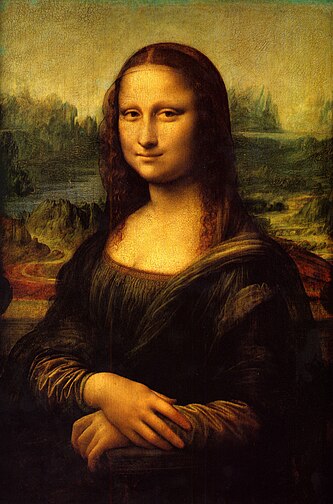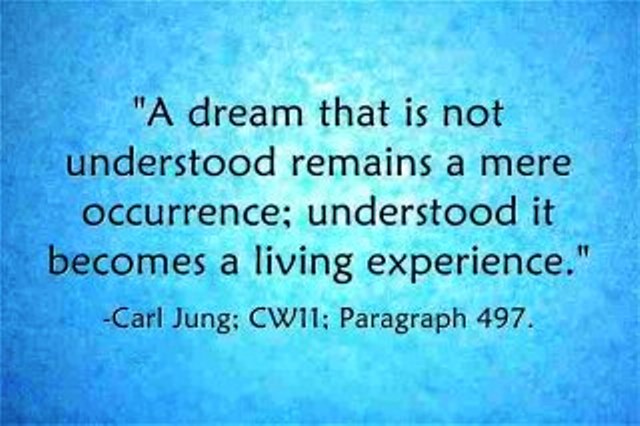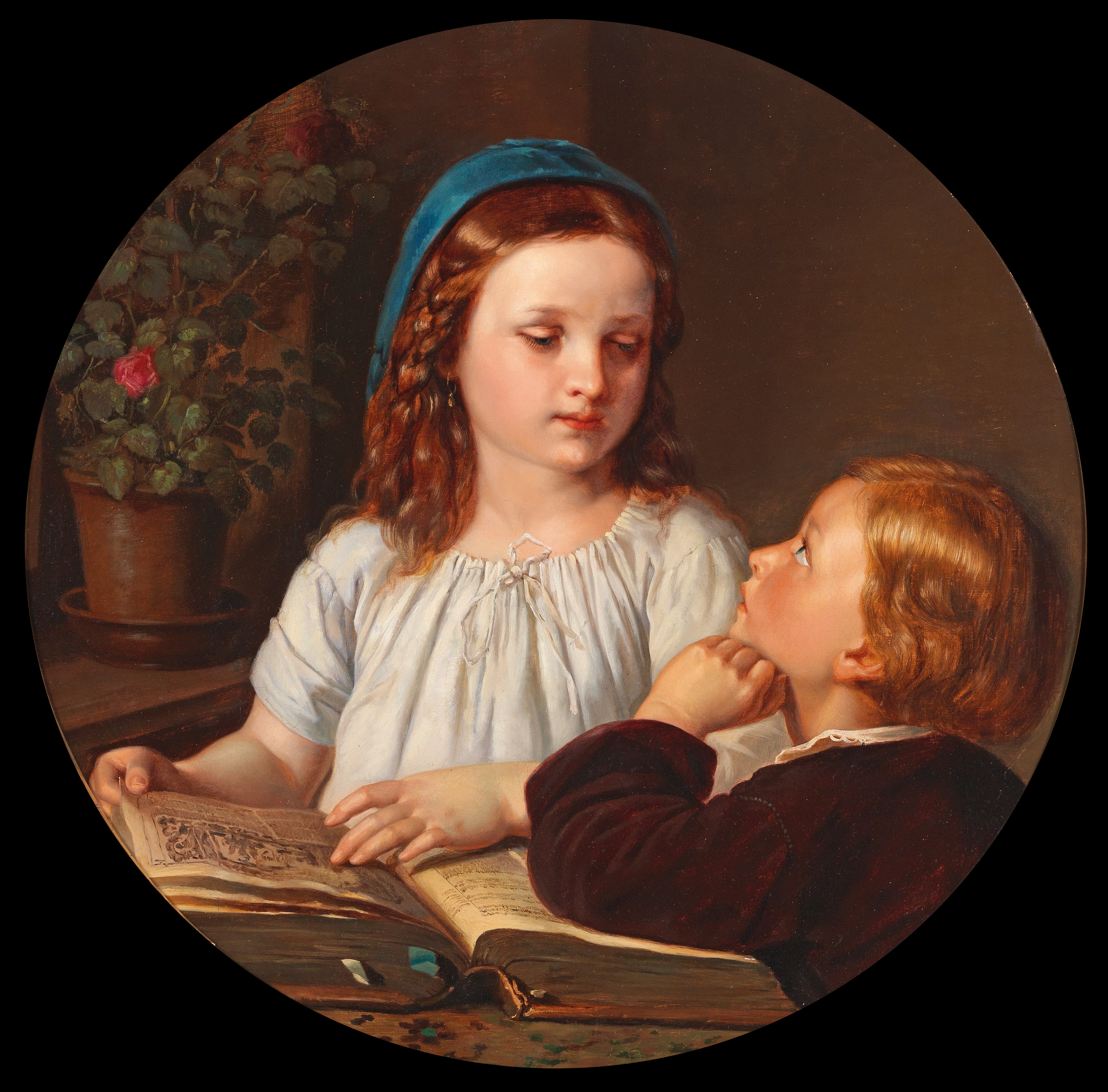
Wiki / Traeumen
(umgeleitet von Wiki.Träumen)
Inhaltsverzeichnis: (verbergen)
 Mona Lisa, 1503-1506 |
| ||||||||||||||||||||||
| Reference (engl.) – Examples of dreamers: ► Blog article Black Elk, the poet and the dream passport, posted by the blogspot mossdreams, Robert Moss (*1946) Australian historian, creator of shamanistic dreamwork Active Dreaming, journalist, author, 15. October 2011, 10. April 2018 |
| Siehe auch: ► Medizin |
|
Narziß erkennt das wahre Wesen seines Freundes Goldmund. Die Naturen von deiner Art, die mit den starken und zarten Sinnen, die Be- |
Träumen ist einer der vier Bewusstseinszustände. Träume spiegeln Zusammenhänge aus vier Seinsebenen wider. Es besteht ein Bezug zu Inhalten aus

Anmerkung: Die explizite Ordnung steht für die begrenzte, sinnlich wahrnehmbare Welt der Realität.
Die implizite Ordnung steht für die unbegrenzte Welt des Möglichen, aus der heraus sich die Wirklichkeit manifestiert.
| Siehe auch: ► Vier Seinsebenen – Hartmann • Gebser • Heim |
Nach ⚡ Ken Wilber ist Zustand ein Kurzwort für "Bewusstseinszustände".
Die Hindu-Philosophie benennt drei bekannte Bewusstseinszustände: Jagrata, Swapna, Sushupti1. Es handelt sich um den Wachzustand, den Traumzustand und den traumlosen Schlaf. Der vierte Zustand wird Turiya oder Nirvikalpa genannt. Er drückt reines Bewusstsein aus.
Der indische Weise Ramana Maharshi spricht ebenfalls von drei wesentlichen Bewusstseinsebenen des Selbstes, das sie als reines formloses Gewahrsein als reiner Zeuge bestätigt:
Er präzisiert es weiter mit diesem Satz:
| Siehe auch: ► Bewusstsein und ► Sieben Bewusstseinszustände – Rudolf Steiner und ► Gesetz 3:1 |
|
Der babylonische König Nebukadnezar hatte einen prophetischen Traum von einer gigantischen Statue, die aus vier Metallen bestand, von ihrem goldenen Kopf bis zu ihren Füßen aus einer Mischung aus Eisen und Ton; während er zusah, zerstörte ein "nicht von Menschenhand behauener Stein" die Statue und wurde zu einem Berg, der die ganze Welt ausfüllte.  Daniels Deutung der vier Tiere Der Israelit Daniel war er ein jüdischer Traumdeuter und apokalyptischer Seher im babylonischen Exil. Er deutete den Traum von Nebukadnezar, dem König von Babylon. |
| |||||||||||||||||||||||||||||||||||||||||||||||||||||||||||||||||||
| Schritliche Referenzen: ► Artikel Nebukadnezars Traum wird gedeutet, präsentiert von thestudiesinthescriptures.com, undatiert ► Artikel Der Prophet Daniel und seine Botschaft, präsentiert von der Publikation Bibelkommentare, Ernst-August Bremicker, undatiert ► Artikel Daniel – Prophet oder Historiker?, präsentiert von der Publikation Foundations Vision, John C. Anderson, Winter 2005 |
| Referenz: de.Wikipedia-Eintrag ► Vier-Reiche-Lehre, präsentiert von dem Buch Daniel im Alten Testament, Kapitel 2 und 7 |
Bekenntnis
Empfehlungen
Schlussfolgerungen
Jung beschreibt eine bahnbrechende Entdeckung aus der Beobachtung von Traumserien aus bis zu mehreren Hundert Träumen eines Klienten.

|
Literaturzitate
|
Traumwelten |
| Quelle: ► Die Ephides-Gedichte. Eine Auswahl aus dem Gesamtwerk, übermittelt durch das Jenseitsmedium Hella Zahrada (†1966), Adyar Verlag, Graz, 1978, 1. Januar 1988 |
Personal avowals
Recommendations
Appeals
Wetiko, the Greatest Epidemic Sickness Known to Humanity, Awaken In The Dream Publishing, 1. January 2011
Conclusions
Insights


|
Literary quotes
| |||||||||||||||||||||||||||
| Sources featuring Michio Kaku, Ph.D. (*1947) Japanese US American leading theoretical physicist, University of New York, co-founder of string field theory, popular "communicator" of science, futurist, author ► Book The Future of the Mind. The Scientific Quest to Understand, Enhance, and Empower the Mind, Doubleday, 25. February 2014 ► Narrated article This is Your Brain on Dreams, with Michio Kaku, presented by the US American web portal Big Think, 3:00 minutes duration, 14. October 2014 |
| References: ► Article Lucid Dreamers Found To Produce The Fastest Brainwave Frequencies Ever Recorded, presented by the online publication Collective Evolution, Arjun Walia, 13. February 2017 ► Blog article How to Lucid Dream: The Complete Guide for Beginners, presented by Mindvalley Blog, Charlie Morley, Amy White, 6. June 2022 |
| See also: ► Consciousness and ► Neuroscience and ► Conscience and ► Unconscious and ► Sigmund Freud |
|
The Babylonian king Nebuchadnezzar had a prophetic dream of a gigantic statue made of four metals, from its gold head to its feet of mingled iron and clay; as he watched, a stone "not cut by human hands" destroyed the statue and became a mountain filling the whole world.  Daniel's Vision of the Four Beasts, 1630 Matthäus Merian the Elder (1593-1650) Swiss-born engraver The Israelite Daniel interpreted a dream of Nebuchadnezzar, king of Babylon. |
| |||||||||||||||||||||||||||||||||||||||||||||||||||||||||||||||||||
| Written references: ► Article Nebuchadnezzar's Dream and Daniel's Vision, presented by the publication Bible Study Tools, undated ► Q&A What is the meaning of Nebuchadnezzar’s dream in Daniel 2?, presented by the publication Got Questions?, undated |
| Video and audio references: ► Video presentation by Walter Veith (*1949) South African professor of zoology, Seventh-day Adventist pastor, speaker, author, 204 – The Mists of Time / Total Onslaught, presented by AmazingDiscoveries.TV, YouTube film, 1:24:50 duration, recorded 2004, posted 29. September 2011 ► Video presentation by Walter Veith (*1949) South African professor of zoology, Seventh-day Adventist pastor, speaker and author, 211 – The Secret Behind Secret Societies / Total Onslaught, presented by the AmazingDiscoveries.TV, YouTube film, 1:27:50 duration, recorded 2004, posted 3. October 2011 |
| Schriftliche Referenz: ► Blogartikel von Thomas Daniel in der Löwengrube, 26. September 2009 |
| Reference: en.Wikipedia entry ► Book of Daniel 2 2nd chapter, verses 31-45 and ► Four kingdoms of Daniel |
| Referenz: de.Wikipedia-Eintrag ► Vier-Reiche-Lehre, präsentiert von dem Buch Daniel im Alten Testament, Kapitel 2 und 7 |
| See also: ► Healing corresponding 'sacred wounds' on four (3:1) levels ► Yuga cycles – Hindu mythological time frame ► Four-stage composition of ancient Egyptian temples – Model of mystery schools |
|
What if you slept? |
| Source: ► Samuel Taylor Coleridge (1772-1834) English Romantic philosopher, literary critic, poet, The Complete Poems, Penguin Classics, 24. April 1997, 5. February 2004 |
♦ ◊ ♦
|
All that we see or seem is but a dream within a dream. |
| Source: ► Edgar Allan Poe (1809-1849) US American literary critic, editor, neurotic poet, romantic author, A Dream Within a Dream, first published appearance in the Boston-based periodical "The Flag of Our Union", 31. March 1849 |
| Referential video: ► A Dream Within A Dream, YouTube film, 1:07 minutes duration, posted 14. October 2009 |
Links zum Thema Träumen und Traumdeutung / Dreaming and dream interpretationLiteratur
Literature (engl.)
Externe Weblinks
External web links (engl.)
Domhoff, unable to prove that the Senoi did not do community dreamwork at the time described, made 7 logical fallacies.
1. Access your subconscious 2. Interpret your dreams 3. Conquer your fears 4. Stop nightmares Audiolinks und Videolinks
Nichtdeutsche oder im Ausland lebenden Deutsche geben Auskunft über Deutschlands Potential für die Zukunft der Welt.
Vor 2600 Jahren dachte der babylonische Herrscher Nebukadnezar des Nachts an die Zukunft. Wie werden seine Nachkommen seinem Reich verfahren? Zu dieser Frage hatte er einen außergewöhnlichen Traum. Aufgewühlt davon, fordert er die Gelehrten und Weisen in der Hauptstadt Babylon auf, seinen Traum zu deuten, vorausgesetzt, sie können ihm auch den Traum selbst erzählen. Sie waren außerstande. Der verschleppte junge Israelit namens Daniel, der später zum biblischen Propheten aufstieg, betete zu Gott und träumte tatsächlich den Traum Nebukadnezars. Obendrein erfuhr er auch dessen Bedeutung: Daniel und Nebukadnezar sahen eine Statue aus den vier Metallen Gold, Silber, Bronze, Eisen. Ihre Füße bestanden aus Eisen und Ton.
Audio and video links (engl.)
Linkless media offerings Audio and video links (engl.) – Marie-Louise von Franz
Alternative source: Jung's Dream of Disaster, 4:06 minutes duration, posted 30. December 2010
Linkless media offering
Female Jungian archetypes: Eve, Helena, Virgin Mary, Sophia (wisdom of God)
|
Hawkins
1 William Q. Judge, Eusebio Urban, The Three Planes Of Human Life, presented by the publication "Path", August 1888 ⇑
2 A lucid dream is any dream during which the dreamer is aware of dreaming. ⇑
3 The term 'lucid dream' was coined by Dutch author and psychiatrist Frederik van Eeden in his 1913 article A Study of Dreams, though descriptions of dreamers being aware that they are dreaming predates the term. ⇑